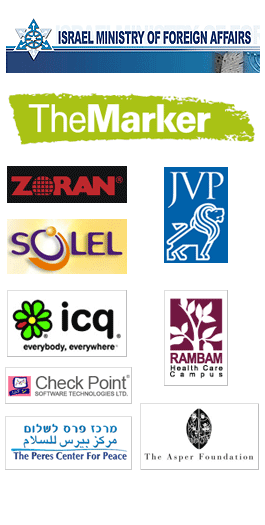Cisco Israel Uses Tech to Build Tolerance
by Jeff Saperstein on April 19, 2008 at 12:00 pm
Can geographically dispersed teens in Israel and the Mediterranean countries create a web based community to increase their own improvement in school, their self-image (believing in themselves and wanting to change), English proficiency, and more their openness to others? Cisco Israel (a branch of the Global Internet company based in the SF Bay Area) is piloting a program that could be scaled to thousands to find out.
Zika Abzuk-Darnell is Cisco Israel Manager of Public Benefit Investment Europe and Emerging Markets.
She manages the social responsibility team. These are large projects that use technology for economic opportunity. Cisco is investing in youth. Web 2.0 technology is a mirror of Western society: the individual is the one who ventures and connects. In the Middle Eastern and African cultures it is difficult to do a program strictly for individuals. They view themselves as part of family and community.
Zika talked about an intriguing pilot program MYTEC ( Mediterranean Youth Technology club).
MYTEC shows how technology can be used for positive social change?web 2.0 with guidance. This enables students to learn about each other and participate. The teens (14-15 year olds) are recruited from Morocco, Egypt, Yemen, Israel, Palestine, Turkey, Greek Cyprus and Portugal. Religion and ethnic identity play an important role in each country. The challenge is: How to foster the interpersonal skills to create business leaders in a global economy that transcends religion and ethnicity.
Cisco selected young leaders (20-30 year olds) in each country to be the instructors for the teen participants. The company brought 20 of these leaders to Marrakesh to teach them English over a two week intensive training program. They also taught them team building and tolerance of others skills. Together they created and built an Internet platform to relate to the kids. One of the instructors was an Israeli Arab. The Arabs who live outside Israel did not know there were Israeli Arabs. They became a team; the social curriculum they developed for kids they experienced themselves. For example, each instructor brought a game from his country and taught it to the group to play together.
Instructors created a virtual development team. The knowledge of the platform is now In seven out of eight countries. Students are in classrooms twice a week in a community knowledge center equipped with computers to learn English, technology skills, and guided activities to learn about each others? culture. The Moroccan kids created a video of how to cook a Tagine. The Turkish kids tried to cook the dish together. They teach each other songs from their home countries. Using video conference software, they have guided conversations and they can post photos.
However, as with any community site trying to bridge differences during national conflict, there can be problems. For example, one of the Moroccan kids posted a message after 140 people were killed in Gaza that Israelis are slayers. Here is when Instructors showed ownership of the program. They took this example and turned it into a lesson on ethics of how to communicate on the Web. First, the instructors enabled a student debate on rules for posting opinions. Eventually, the students agreed on a protocol for confrontational messages in their web community. They discussed the caricature of Mohammed, what is allowed and freedom of speech; Israeli kids spoke of what they thought should be allowed. The kids in each country had their own debate; they developed ground rules of how to communicate. The kids have become ambassadors of change within communities. They learn technology and volunteer what they learn and open the community center and invite parents.
MYTEC is a good example of how Web 2.0 interactivity can be used for positive social change.




